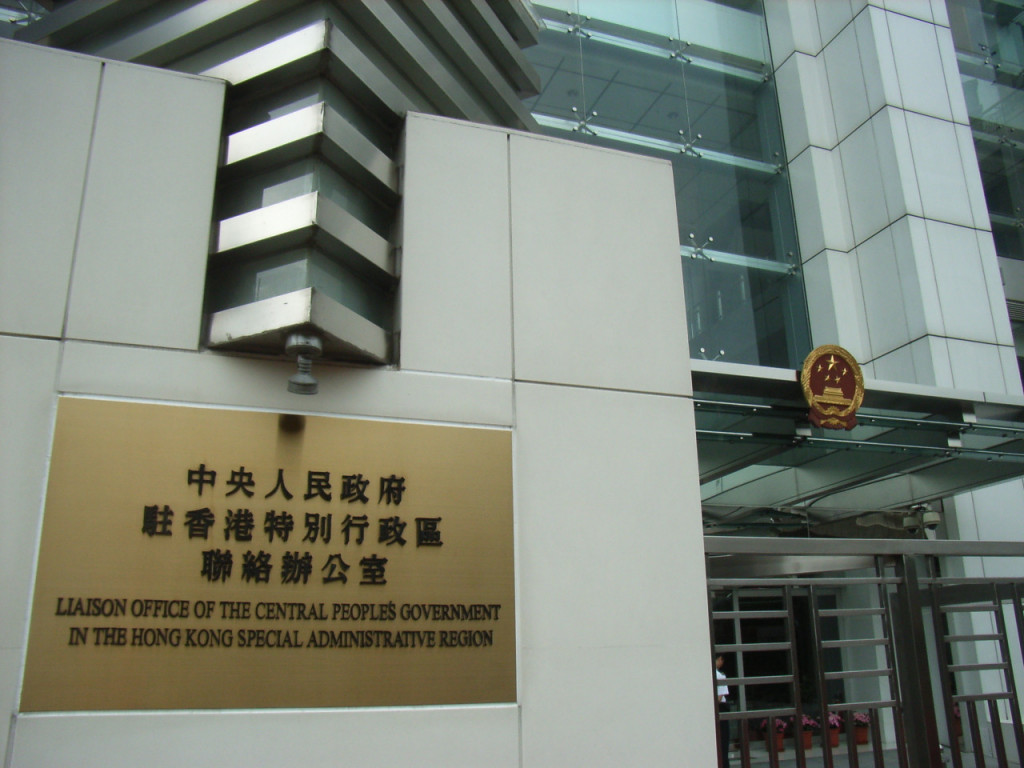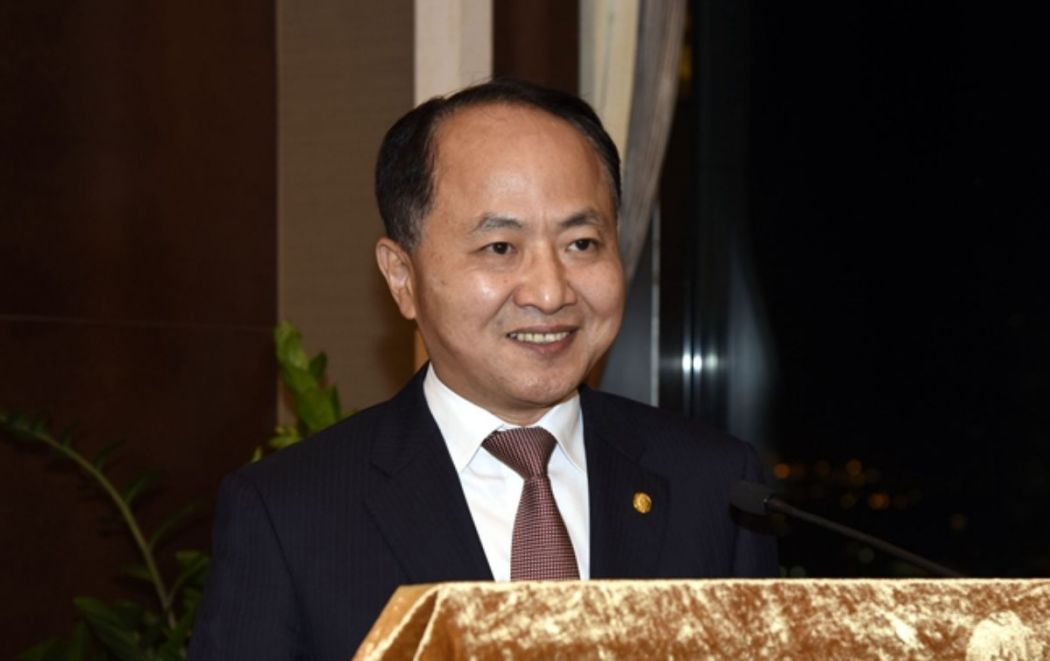A think tank led by the ex-president of the Legislative Council Jasper Tsang has proposed amending the Basic Law so that the China Liaison Office would have a formal role.
Members of Hong Kong Vision, including Tsang as its convenor, presented a study on Sunday about the implementation of the city’s mini-constitution. The study also recommended reforming the executive council, starting consultation on legislating a national security law and universal suffrage, and making appointments of under-secretaries subject to Beijing’s approval.

Tsang said amending the Basic Law would allow the China Liaison Office to carry out their duties with more legitimacy.
“If you don’t like what the China Liaison Office is doing, then they are already doing it even if it’s not written in the Basic Law,” Tsang said. “If you put it into the Basic Law, we can give an opportunity for people to discuss what should be written.”
Currently, Article 22 of the Basic Law states that no department of the Central People’s Government may interfere in the affairs which Hong Kong administers on its own.
Researcher Kay Lam Chi-yan said that there is ambiguity over whether Article 22 covers the China Liaison Office, as it is not a department of the central government per se.

When asked if the China Liaison Office overstepped its bounds, Tsang said that it played a role in elections for Chinese political bodies, but allegations that it interfered in local elections were only “exaggerated rumours.”
Hong Kong Vision also proposed combining the consultation exercises for the legislation of the Article 23 national security law and universal suffrage.
“If they are done separately, then if one fails, the other is just as difficult. The pan-democrats say, if there is no universal suffrage then there can be no Article 23 legislation, but the central government seems to think that there is no guarantee if there is no Article 23 legislation.” Tsang said. “So the two are related.”
Article 23 stipulates that the Hong Kong government shall enact laws on its own to prohibit any act of treason, secession, sedition, subversion against the central government. Its legislation failed in 2003 following mass protests.
‘Disastrous’ interference
The think tank’s suggestions faced opposition from pro-democracy politicians, with Democratic Party lawmaker Helena Wong saying that the China Liaison Office acted contrary to the Basic Law.

Wong said in a statement on Monday that the Office had more than 500 staff members, and its activities amounted to interference in local affairs. She said the Office’s role in Hong Kong elections were unconstitutional, as she urged the central government to strictly limit the Office’s powers.
“The recommendations by [Hong Kong Vision] completely match the central government’s need for full control… This will be a disastrous thing to do,” Wong said.
Lawmaker Au Nok-hin also said that the China Liaison Office should be governed by Basic Law Article 22, and it would be a “fallacy” to say otherwise.
